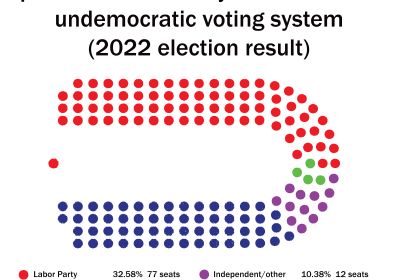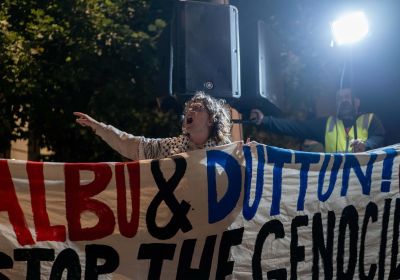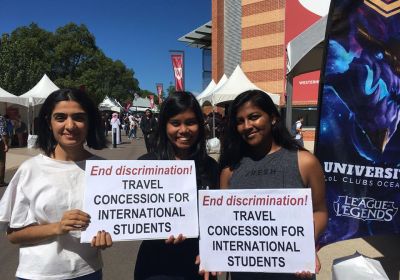
Australia’s undemocratic voting system works to funnel small parties’ preferences to the Coalition and Labor. Zane Alcorn argues that a proportional voting system in the House of Representatives would be more democratic.

Australia’s undemocratic voting system works to funnel small parties’ preferences to the Coalition and Labor. Zane Alcorn argues that a proportional voting system in the House of Representatives would be more democratic.

Labor made a lot of promises to support Palestine, but it has failed on many fronts, not least in its unwavering support for Israel’s war. Khaled Ghannam argues that those who care about justice must vote for Palestine.

Zionist social media influencers and Labor members Ofir Birenbaum and Sophie Calland are gearing up for the federal election. Wendy Bacon and Yaakov Aharon report.

It’s a scary thought, but Anthony Albanese or Peter Dutton could be elected the next prime minister on a minority of votes. Blair Vidakovich reports.

Labor wants to cap the number of international students studying in Australia, but student groups and the NTEU are pushing back. Angus McGregor reports.

Labor's decision to expand gas in a climate emergency reveals how much it has been captured by fossil fuel corporations. Pip Hinman reports.

Labor is playing a game over Gaza. To claim to support a ceasefire while arming and giving political cover to the perpetrators of genocide is sick cynicism, argues Sam Wainwright.